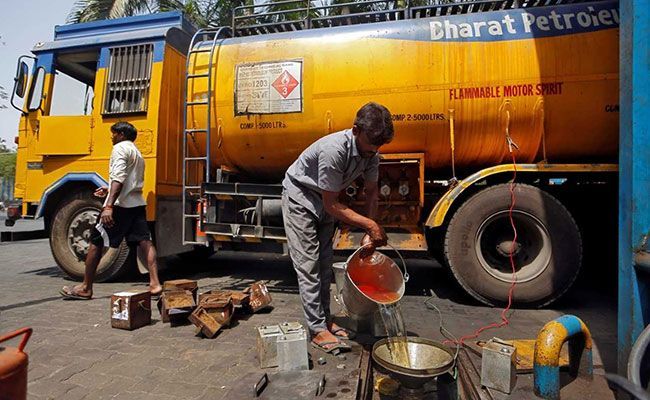One Year of GST: If petrol and diesel are also brought under the GST regime, can it help provide relief to consumers?
The rise in petrol and diesel prices has burnt a hole in the pocket of the common citizen. In the month of May, due to global oil prices touching $80 a barrel, domestic petrol and diesel prices skyrocketed to all-time highs in some cities. Because of this, retail inflation surged to a four-month high of 4.87 per cent in May. Oil marketing companies revise petrol and diesel rates every day on the basis of global crude oil prices. GST roll-out finishes a year on July 1. If petrol and diesel are also brought under the GST regime this year, can it help provide relief to consumers?
Experts call for bringing the two fuels under GST.
“Petroleum products have to come under the GST regime for sure very soon. Today, there is lot of tax cascading faced by the petroleum sector. This cascading effect will come down once these products are included within the GST regime. The government has an endeavour to reduce the price on the essential petroleum products and there is high hope that the benefit of reduced tax rates would be passed on to the consumers,” said Abhishek A Rastogi, Partner, Khaitan & Co.
Currently, both central and state governments levy taxes on petrol and diesel, i.e. excise duty and VAT or value added tax. The excise duty on petrol is approximately 19.48 per litre and 15.33 per litre and VAT is charged in different states at rates ranging from 15 per cent to 40 per cent on petrol and at 10 per cent to 28.5 per cent on diesel. Thus, petrol and diesel invite more than 50 per cent tax, say experts. That is why consumers have to pay more taxes on petrol and diesel.
“If GST is imposed on petrol and diesel, it will lead to a fall in the prices of petrol and diesel. Even if these items are taxed at a higher rate of 28 per cent and cess of 15 per cent, it will lead to reduction in prices,” said Vishal Raheja, DGM-GST, Taxmann.
(Also Read: 6.86 Crore Income Tax Returns Filed In Fiscal Year 2018, Says Arun Jaitley)
Petrol and diesel help in transportation of goods. As of now, businesses using petrol and diesel as inputs are unable to claim input tax credit on the taxes paid on purchase of petrol and diesel. Input tax credit on GST helps manufacturers save on tax that they pay on their output because they have already paid the same on their purchases. So, while paying tax on output, they can claim credit for the tax they paid on inputs. Input tax credit helps increase margins for small businesses.
If both fuels are brought under GST, it will automatically lead to a reduction in taxes that you pay on them and thus, lead to a fall in their prices.
“If petrol/diesel is brought within the ambit of GST, the industry will be able to claim the said credit and reduce their manufacturing cost. Currently, petrol and diesel are major revenue generators for state and central governments. The common man will immensely benefit from the reduced price of petrol/diesel,” said Parag Mehta, partner, N.A. Shah Associates LLP.
In December last year, the then finance minister Arun Jaitley had told the Rajya Sabha that the Central government was in favour of bringing petroleum products under the ambit of GST after building a consensus with states. Oil Minister Dharmendra Pradhan has also backed the call to bring the two fuels under GST.
However, Niti Aayog vice chairman Rajiv Kumar said that bringing petroleum products under GST is impractical. “It (oil) can’t be brought under GST. That’s because the total state and central taxes on petrol put together are around 90 per cent right now,” he had said, according to a report by news agency Indo-Asian News Service.


